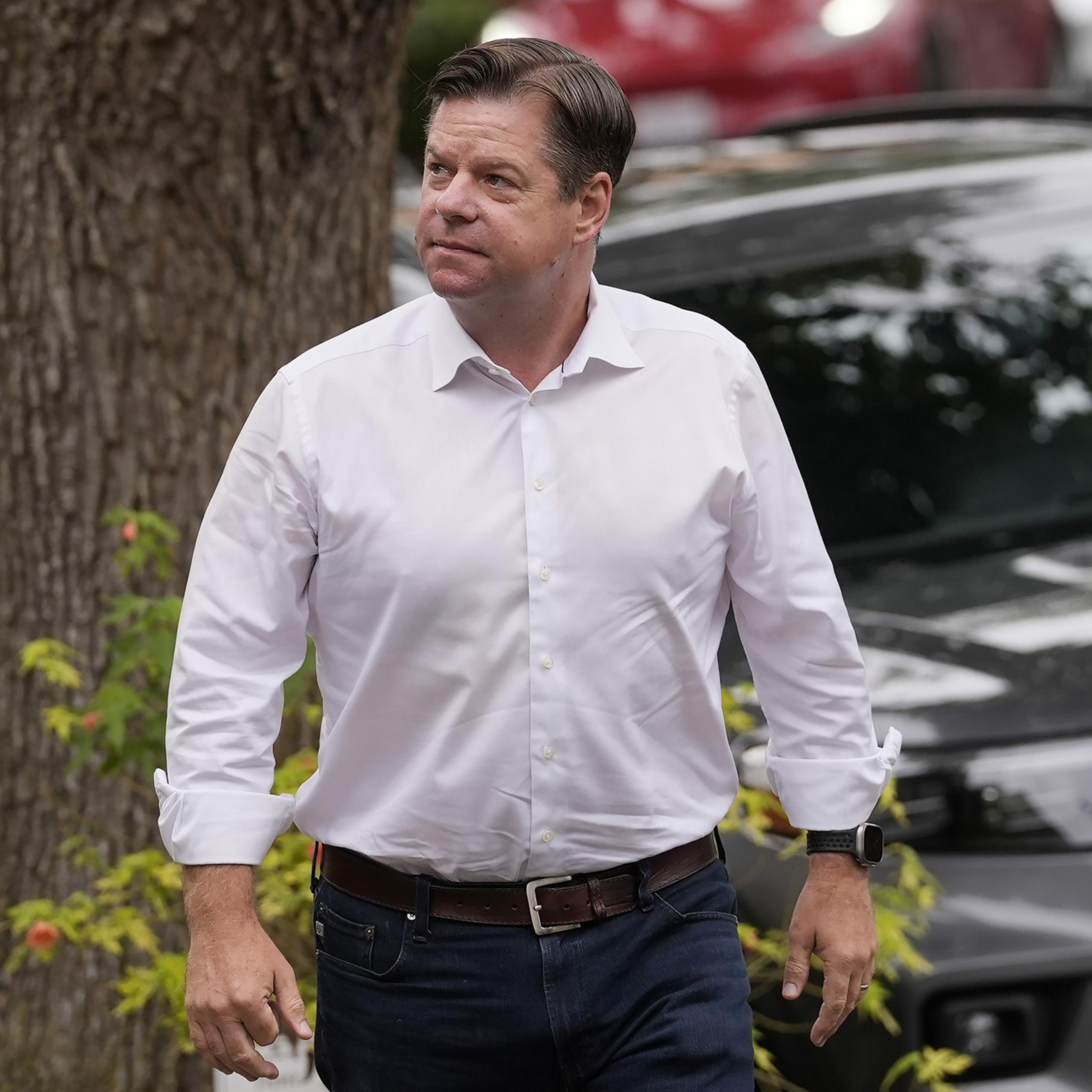Mayoral candidate Mark Farrell is set to pay the largest settlement in San Francisco Ethics Commission history for alleged election-season misdeeds.
Farrell will pay $108,179 in a settlement over campaign finance snafus the ethics commission called “significant” violations of the law.
The commission alleges Farrell double-dipped, taking $93,000 in contributions from a PAC in his name supporting Proposition D, a ballot measure to cut city commissions, and giving them to his own campaign. PACs are allowed to rake in donations of unlimited amounts, whereas campaign committees are limited to $500 donations. The Standard’s chairman, Michael Moritz, has given money to Farrell’s Prop. D committee, the PAC in question.
Farrell’s own campaign and the Prop. D committee are restricted in how they can exchange resources, and the ethics commission accused the groups of illegally commingling funds — a major campaign no-no. Olabisi Matthews, the Ethics Commission enforcement director, said Farrell violated ethics laws (opens in new tab) eight separate times.
“If approved, this case represents the largest penalty issued in the history of the San Francisco Ethics Commission,” Matthews said in a statement. “This record penalty reflects the serious harm that was done to the public’s right to have timely and accurate information about how campaigns are funded in San Francisco. It also reflects the severity of violating the $500 contribution limit, which is one of the most basic rules that all candidates have to follow.”
Some of the allegedly improper contributions were already refunded by Farrell’s campaign, the Ethics Commission noted.
The settlement follows a series of reports suggesting that Farrell’s campaign ran afoul of campaign finance rules this election season. Farrell’s competitors and news agencies dug up substantial allegations against him and his campaign, including that he inappropriately asked Mayor London Breed’s office to speed up home renovation permits, that he failed to disclose a $675,000 home loan in campaign documents (opens in new tab), and that high-level staffers at PACs were improperly helping his campaign.
The allegations reached a fever pitch when former Mayors Willie Brown, Art Agnos, and Frank Jordan penned a joint letter with other former officials to call on the attorney general and district attorney to open a criminal probe into Farrell’s campaign, voicing concern about some of the very same allegations the Ethics Commission levied.
The ethics commission said Farrell’s ballot measure committee and mayoral campaign had intended to split their expenses 50/50. For months, however, the ballot committee partially reimbursed the mayoral committee for staff they shared, the office they both occupied, and other joint expenses. That’s all allowed. But when payments between committees exceed expenses, they are considered illegal contributions.
The ethics commission alleges the Farrell campaign also erred when they reversed these errant transactions, instead of paying them as fines to the ethics commission itself.
“The potential harm in a reversed transaction of this size is that it serves as an interest-free loan to the mayoral committee,” the ethics commission wrote in its findings.
In a statement, Farrell called the campaign finance issues a misunderstanding.
“We agreed to a settlement for an accounting error that we corrected and publicly disclosed months ago, and over a disagreement about staff time allocation during the campaign, which led us to terminate our prior legal counsel for this matter,” Farrell wrote. “As the person responsible for both campaigns, I take full ownership of these issues—this is [the] kind of accountability I am modeling for my children.”
The commission countered Farrell’s claim in its stipulation, noting it had obtained more than 100 communications from both Farrell and his staff showing the campaign finance mixing was intentional.
Some of those communications told donors that donations to Farrell’s Prop. D committee are “one of the most significant ways you could impact the campaign.”
In a statement issued through the Farrell campaign, Anthony Quinn, former member of the California Fair Political Practices Commission, called out the San Francisco Ethics Commission for rushing its findings.
“Given the public nature of the allegations and their use by political opponents in a contested election, the Ethics Commission should have followed its standard procedures and timelines and avoided any appearance of taking sides in a political controversy,” Quinn said. “The voters should be free to elect who they wish without undue influence from a public agency.”
The commission has come under fire for years for its slow response to campaign violations. Paul Melbostad, who served on the Ethics Commission from 1995 to 2003, said investigations regarding campaign finance violations usually take one to two years.
While he was surprised by how fast this inquiry resulted in a penalty, considering Farrell launched his bid for mayor less than a year ago, Mebostad said it is important for voters to know whether campaigns are breaking the rules.
“That is the most blatant in history use of a ballot measure committee to support a candidate — or the defeat of a candidate,” said Melbostad. “I’m pleased that the [Ethics Commission] staff was smart enough to get it.”
Matthews, the commission’s enforcement director, said the agency’s desire to resolve this case prior to Election Day was aimed at giving the public information about campaign violations “when it matters most.”
Opponents are already seizing on Farrell’s fumble.
“Mark Farrell’s ethics violation only confirms what many have suspected — he lacks the integrity and accountability needed to lead San Francisco as mayor,” said Board of Supervisors President Aaron Peskin.
“It’s time for a new era of accountable leadership,” said Levi Strauss heir and mayoral candidate Daniel Lurie.
The district attorney and attorney general have not yet said whether they’re conducting a criminal probe.

